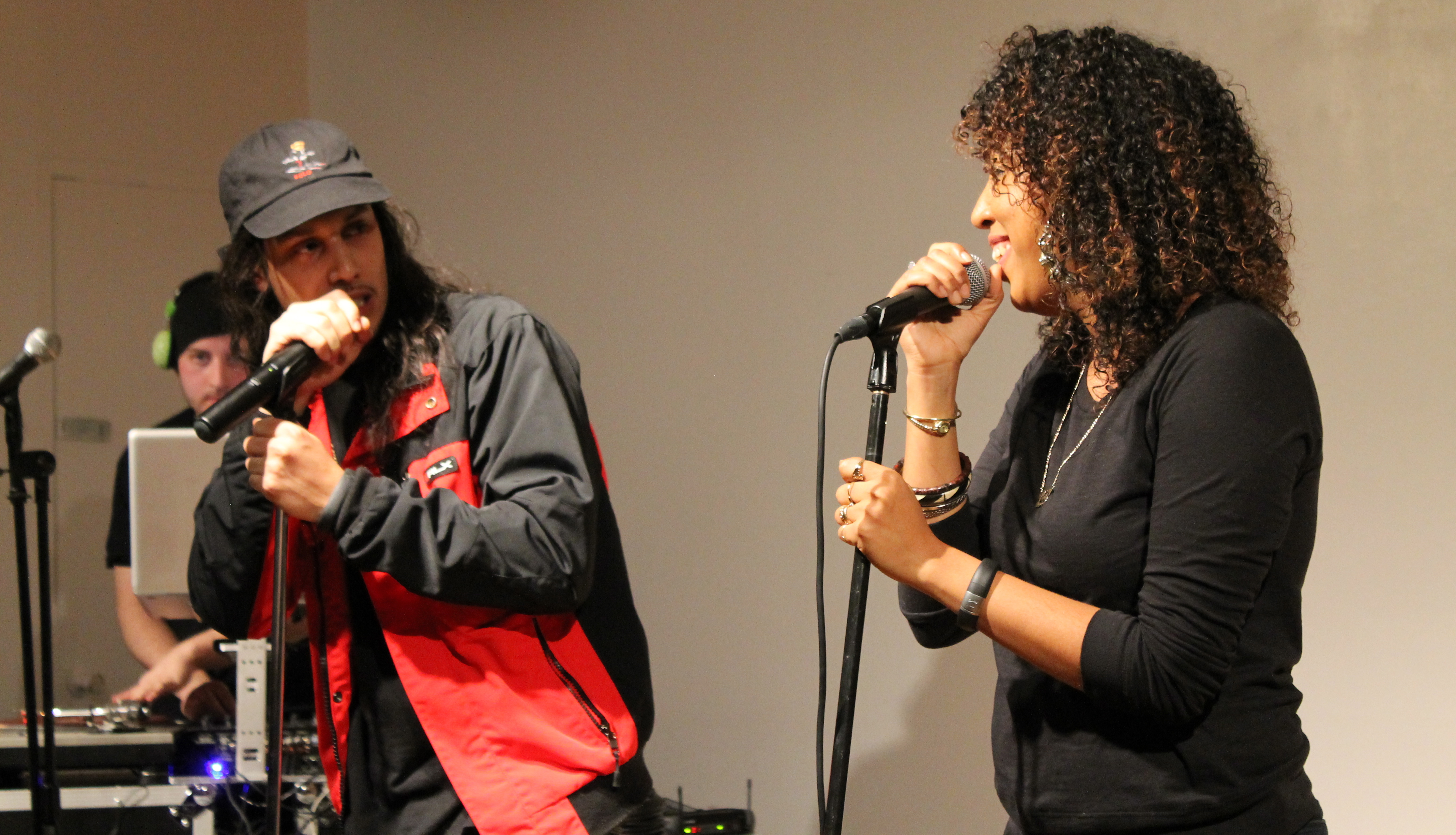
Hip-hop duo teaches young people the art of rapping
At the age of seven, two years after Patty Dukes moved to New York from Puerto Rico, she started writing down rap lyrics so she could understand the words.
She didn’t hear many girl rappers and none were Latina. So when she rapped, she kept it to herself.
Even after graduating from Hunter College with a degree in creative writing, Dukes dismissed the idea of becoming a performer until she met rapper Reph Star, who recorded her.
“I had never heard my voice recorded. That changed my life,” said Dukes. “Even though it might not have been that good, I was like, ‘Wow, it’s really good. Why can’t I?’”
Dukes and Star went on to pair up as hip-hop performers six years ago, calling themselves Circa ’95. They have since built up a sizeable fan base. In December, the duo performed new material at Pregones Theater on Walton Avenue, and is hoping that appearance will help launch a tour.
In their pre-Circa days in 2007, Dukes got a taste of the biz when she auditioned for the Cuervoton rapping competition. The judges liked her work but told her she needed to write her own song. With less than a week to prepare, she called Star, wrote a song and won the New York competition. The duo was then flown to Chicago to compete at the national level.
They won.
“I was wearing a dress and wearing sneakers, and I was the only girl there,” said Dukes. But the record deal they were promised fell through.
“It was a learning opportunity to see how quickly things can change,” said Dukes.
With no record deal, Star and Dukes started working in the community. They have hosted a radio show, acted in theater productions, led workshops in schools, recorded an album, created a clothing line and performed at countless local events.
“In the Bronx when you see organizations and non-profits in the community, you’re going to see Circa ’95,” said Fred Ones, who produced the duo’s first album, Free Lunch.
“It’s an institution,” said Julian Gerena-Quinones, 32, a film maker and lifelong friend of Star’s who shot a music video with Circa years ago. “It’s grown into an educational component, a way of giving back to the community, teaching young people how to connect with their hip hop roots.”
Star and Dukes support themselves by leading local hip-hop workshops for young people, including a weekly group at the DreamYard Art Center, where they go by the moniker Bronx Rhyme Factory. They start classes off with simple improvisational rhyming games. By the end of the eight-month workshops, students are expected to write and record their own songs.
One group of young people that attended one of their workshops several years ago at Casita Maria Center for Arts and Education has since formed its own hip-hop group, The Apollyions. Star said he overheard one young performer tell a visitor that The Rhyme Factory saved his life. “That’s why we do it at the end of the day,” said Star.
The group is frequently sought after to perform at local schools, where they have the students in thrall. Last year, Circa performed at a Hunts Point school for a group of antsy fifth graders right before vacation. “It was one of the craziest crowds we ever had,” said Star.
Over the six years the duo has performed, they say, their music has evolved. It isn’t as angry now and they don’t use profanity.
In one song, Dukes responds to someone who assumes that, as a Puerto Rican, she should look like Jennifer Lopez.
“It’s this idea that we have to be sexualized, that we have to be shapely, that we have to be these big booty girls,” said Dukes.
As educators, they are more careful about how they craft their lyrics.
“Myself and Reph we’re both products of the free lunch program,” said Dukes, referring to the title of their first album. “But it automatically sections you off in this world as this low income student. But we are much more than that.”
They rap in both English and Spanish, reflecting the Spanglish upbringing of their neighborhoods. Fans have told them that they connect with lyrics such as, “Too light to be black, too black to be Spanish.”
“They’re part of this new bilingual hip-hop musical trend which is very much part of the Bronx culture today,” said Mark Naison, 67, professor of African American Studies and History at Fordham.
Although Star and Dukes use personal material in their lyrics, they don’t reveal their ages or use their given names, Patricia Marte and Amilcar Alfaro-Martell. They maintain that preserving some mystery helps empower them when they go out on stage.
“It’s kind of like having a super hero identity,” said Dukes. “Maybe I’m not Superman in real life. But in these moments I can be.”
This article has been modified to reflect the following correction: Julian Gerena-Quinones is a film-maker, not a rapper, and is not from the Bronx.

